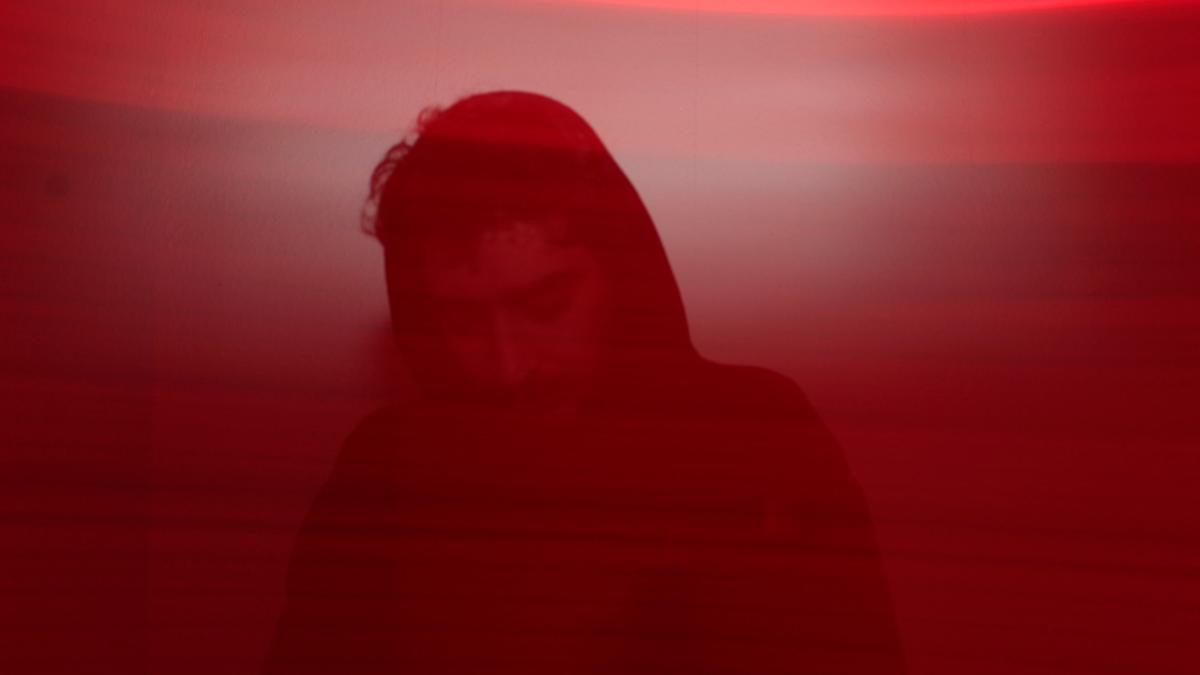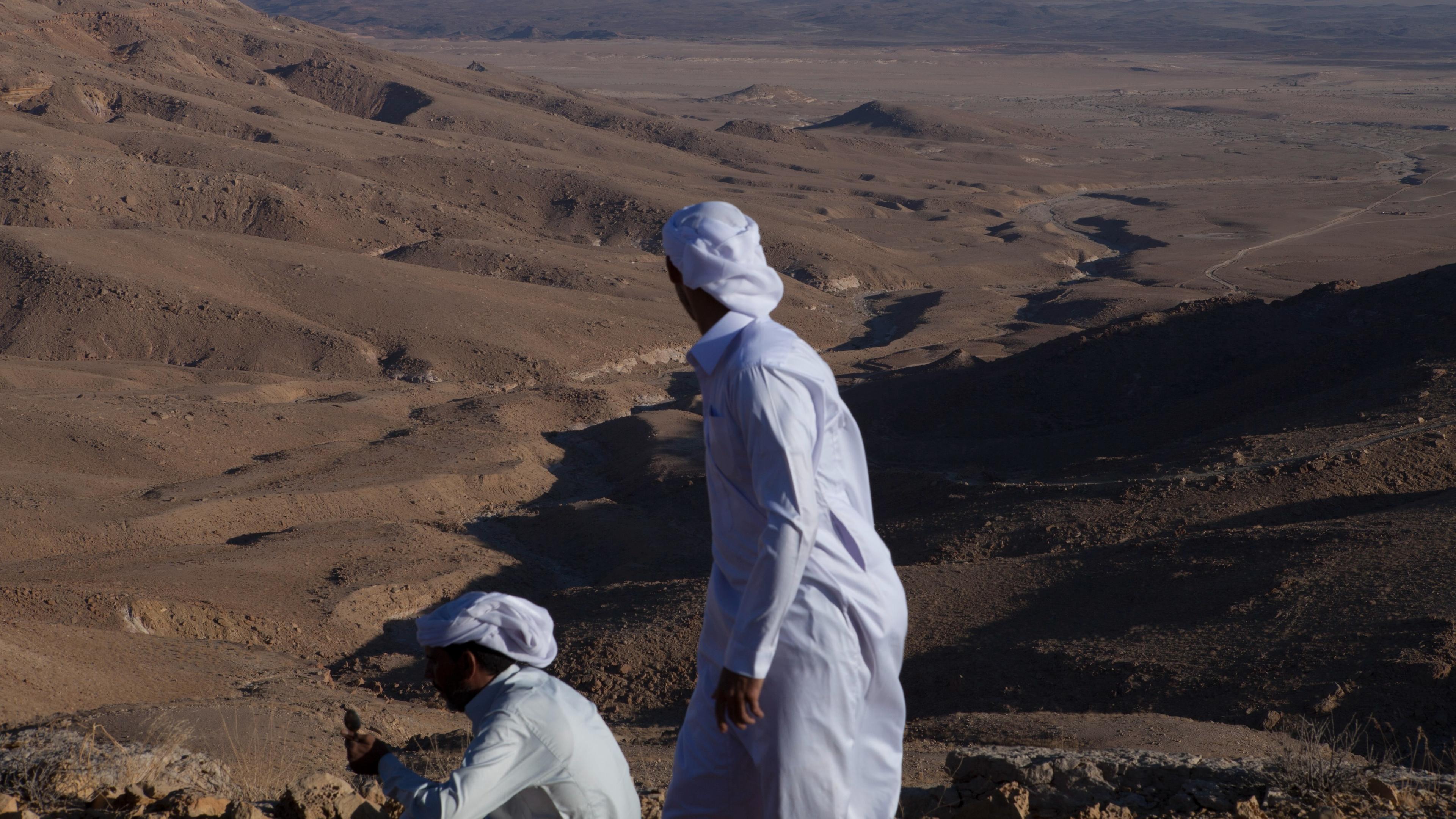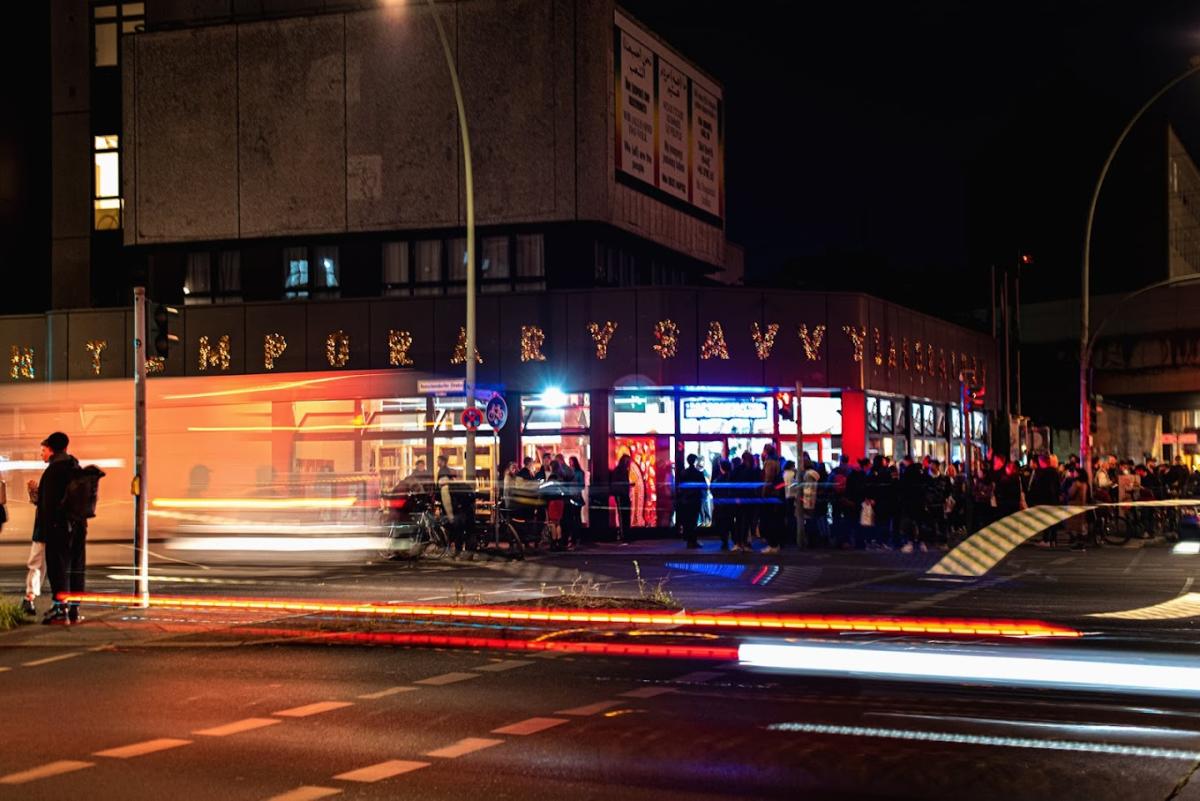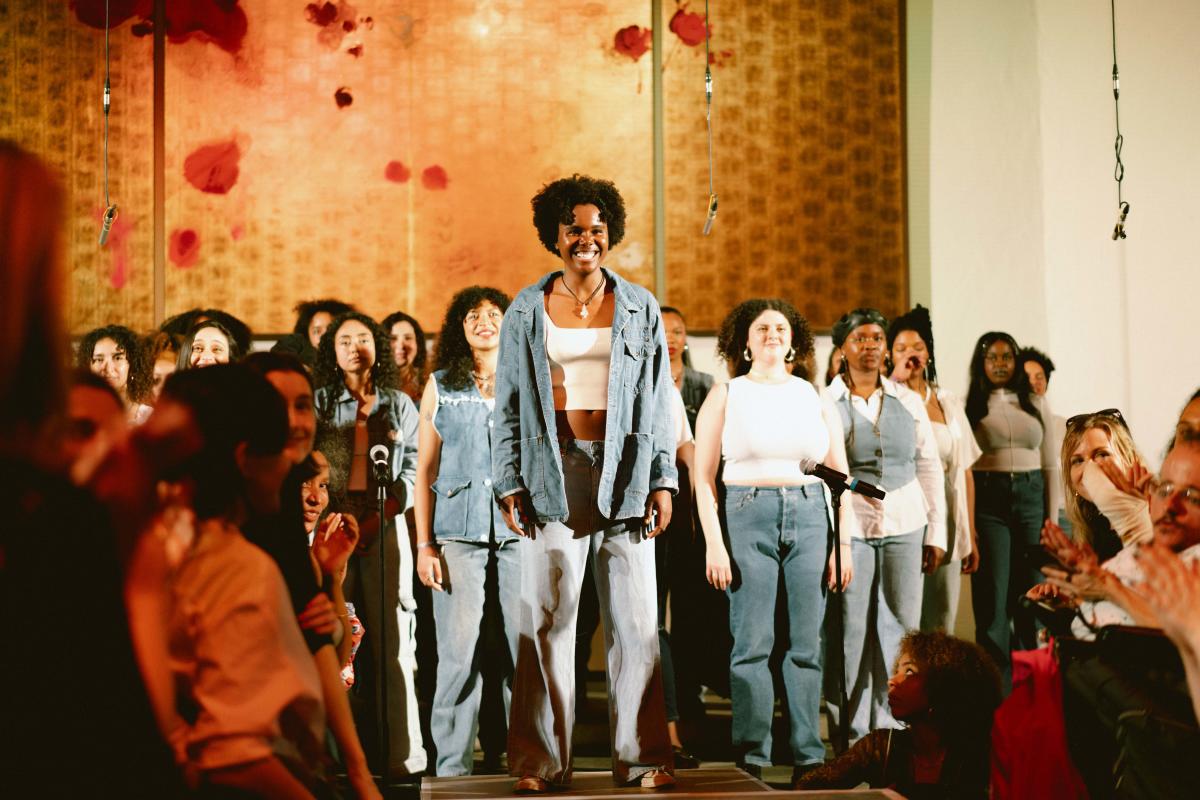
Berlin Stories | 25 April-2 May
News and events from our community in Berlin.
Loading

A transcribed conversation with Jumana Manna, Basma al-Sharif, Shadi Habib Allah, and Bassem Saad.
By Staff
Flip The Script Palestine is a series of conversations that celebrate the rich multiplicity of Palestinian cultural identities and explore the stories of anti-occupation activists. They are an invitation to learn, unlearn and explore different forms of intersectional solidarity and resistance.
As part of the Queer Cinema for Palestine / No Pride in Genocide film programme, ATHAR hosted the Articulating Power event last December at filmArche Berlin. Moderated by artist and writer Bassem Saad, this recording is from the panel discussion with Basma al-Sharif, Shadi Habib Allah and Jumana Manna that followed the screenings of their films:
Home Movies Gaza — Basma al-Sharif An introduction to the Gaza Strip as a microcosm for the failure of civilisation.
Dag'aa — Shadi Habib Allah A journey across the heavily militarised Sinai Peninsula.
Blessed Blessed Oblivion — Jumana Manna A portrait of masculine performativity in East Jerusalem.
Queer Cinema for Palestine was a global event across 9 cities in solidarity with Palestinians and part of the decolonial movement for justice. Over the past 5 years, nearly 60 filmmakers have withdrawn from the Israeli government-sponsored TLVFest LGBTQ film festival in response to the boycott call from Palestinian queers. 200+ filmmakers, film artists, and scholars have signed the Queer Cinema for Palestine pledge not to participate in TLVFest in a sign of growing rejection of Israeli pinkwashing and recognition of the intimate connections between liberation struggles of all oppressed peoples and communities.
Read an excerpt of the show below – a full transcript of this show is available here.
BASSEM SAAD: I found it interesting how the three films came together tonight. All three of them are very much invested in a portrayal of a kind of stretched, empty and almost dead time, a lot of investment in the banality of everyday and minor uneventful interactions between particular groups. And maybe that's different in the case of your film Basma, but in general, the films are very different from the current moment that we're living in now, this moment of rupture and unfolding tragedy. But there is a kind of way in which even that banality has a limit, the political will always come through, or the structures of the occupation and the siege will filter in at specific moments.
For example the graffiti on the wall at the end of the film (Home Movies Gaza), I kind of felt like it was very deliberate to keep that till the end, like to restrain... In Dag’aa, there are very minor conversations where something more explicit about the context comes through. I wonder if you'd like to talk more about how the films formally, and on an aesthetic level, condense or expand this time – the everyday as it is lived between moments of upheaval or rupture?
BASMA AL-SHARIF: I mean, actually, for those first two weeks, it was very banal. It was just like a normal homecoming and rediscovering visiting family and going around Gaza, like because I hadn't been there before since Israel had dismantled its settlements. And so I was like, I really want to go where the settlements used to be, because that's an area I couldn't have gone to before, so it was very banal. I think even as an artist, I thought I don't know what I'm going to do, you know, it's just it's so calm, there's nothing political about it.
I think there is something about Palestine, that it falls under the world's attention in these moments, and not just since the siege on Gaza or the wars, but throughout its history, there have just been these peaks when suddenly the world cares and we feel like we're under a microscope, and then everyone sort of forgets. It's these moments in between that are actually very difficult because the occupation persists and intensifies and becomes increasingly more violent.
Maybe that's why I also was really noticing this in our films that it's not the hot topics that one wants to see, it's this kind of in-between, and it's about how significant that is, or how much it fills in maybe the gap of our own understanding. For me, I can't go anywhere, but Gaza, because these IDs and these classifications of where you're from in Palestine are how they restrict movements. So I can't go to Jerusalem or the occupied territories, and definitely not inside of Israel. That's technically illegal, even though I have had family in the West Bank since 2000.
I think in my film, the aesthetic choices, all the manipulations – because essentially, every scene is manipulated, it's either running backwards or has something added to it, and the sound is non-diegetic, it's not from the scene itself – was meant to draw attention to this kind of insidious, like invisible terror that is in that in that territory.
I'll just point to one scene, in which there is a television screen that has this scramble that comes from drone interference. You don't hear drones unless they dropped to a certain level and they were technically illegal. I think in the last war, Israel had agreed to no longer have drone surveillance over Gaza. And for four years, they were basically surveying and you couldn't hear it but TVs would get scrambled if drones were in the area and I didn't know this and I kept noticing that, like we would watch this show, and then they would scramble, and then they just be like, fuck, turn the TV off. Once we were watching a film that I really wanted to finish...
It's those tiny things that I really appreciate because it's, I don't know, it's like this insistence on continuing to live a really normal banal life of watching a television series whilst knowing that this thing is happening. And we understood the drone surveillance is done so that then they decide where to bomb during these wars.
BASSEM SAAD: So there's the ominous quality in all the films patched to all of the everyday.
SHADI HABIB ALLAH: I don't know how to respond to that, because actually for me... it was exactly when Sisi took over, the coup. So I had to film during that time. So it was really tense, it was really very charged. But the people that I met along the way, made it sound like this is the normal thing that they do every day. And you would meet people who like to travel with people who are religious, and you have to pray with them, like five prayers a day. And then you're smuggled with other people who take opium five times a day. And the groups change, and the person like when somebody connects you to someone, you can meet them and both of you have this doubt, because they think you are maybe working for the Egyptian secret services and you think they maybe think that and maybe they're going to kill you along the way. So you both look at each other with suspicious eyes, the first interaction when somebody connects you, and just like stare at each other for like five minutes.
And you drive and no one says anything, because I don't understand the dialect properly and they don't understand my dialect. It took a while to learn a bit of that. But then as you're in the desert, things start to calm down. One of the things I was thinking about before I shot the film was the book How To Disappear In America, by Seth Price, a counterculture handbook about how you go about disappearing in the 60s. And I was thinking like, how do you do this in the desert? But actually, you hide in plain sight because the landscape is so big, so vast, that it almost swallows you.
JUMANA MANNA: I had many thoughts. Thanks for talking before me because it helped me think! I'm interested in the banal in so many ways. Like if we start from Jerusalem, I don't know how many of you have been there, but it's kind of a boring place. You know, there's a very strange quality, I think, to Jerusalem and maybe other parts of Palestine. Also because of the occupation, the occupation kills life, it makes things more dull, and Jerusalem in particular, where the tension is felt in a heightened way, because it's a mixed city. It's a religious city. And so you have on the one hand, these fantastic ancient sites and magic of Jerusalem that you have in moments when you look at the view or you enter a place that's 1000s of years old and you see this really bizarre enmity.
There is something fascinating about Jerusalem at the same time incredibly dull and mundane, because people are just getting on with their lives in far less than ideal circumstances. And I think that's also what you're talking about Basma like, that's a quality that we grew up with, you know, this kind of dullness.
Life under occupation means managing the every day, you have to figure out what checkpoints are closed, and there's a lot of waiting time. It's not a fancy life. There's a lot of time spent in the everyday. I have an interest in everyday because these mega narratives or important historical things are constantly overshadowing the everyday which in and of itself is the continuity and is the ‘sumud’... the defiance of the attempt of constant erasure that gets affirmed through just the very basic things of everyday life. So I like this part in the film where the carwash guy goes into great detail about how they washed the cars, the art of car washing.

News and events from our community in Berlin.

Stepping On Each Other's Feet kicks off on May 2nd.

The festival week is 6-12 May.